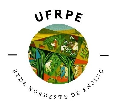Banca de QUALIFICAÇÃO: NIELDY MIGUEL DA SILVA
Uma banca de QUALIFICAÇÃO de DOUTORADO foi cadastrada pelo programa.STUDENT : NIELDY MIGUEL DA SILVA
DATE: 01/09/2023
TIME: 14:00
LOCAL: Google Meet
TITLE:
BETWEEN ABANDONMENT AND PERSEVERANCE: THE RELATIONSHIP WITH KNOWLEDGE IN THE EDUCATION OF PHYSICS TEACHERS
KEY WORDS:
Licentiate degree in Physics. Dropout and Persistence. Relationship to Knowledge
PAGES: 106
BIG AREA: Ciências Humanas
AREA: Educação
SUBÁREA: Currículo
SPECIALTY: Currículos Específicos para Níveis e Tipos de Educação
SUMMARY:
This research aims to investigate the aspects contributing to the retention of Physics education students in the programs offered by Higher Education Institutions in Pernambuco, Brazil. Theoretical foundations draw from Bernard Charlot's theory of relationship with knowledge, seeking to comprehend the factors influencing both attrition and persistence in the education of physics teachers. The theory's development hinges on the relationships established with others, with the world, and with oneself when confronted with the necessity to learn.
Methodologically, a multipaper structure was adopted, entailing the construction of the research in the form of a series of articles presenting distinct methodological approaches. The findings suggest a scarcity of studies connecting these two fields, with existing research focused on a limited number of researchers. Motivation emerged as a prevalent factor in the analyzed works, influencing both course selection and continued study (Article 1).
Regarding the curricular frameworks of the investigated physics education programs, a discreet integration of specific content with pedagogical elements was identified. This integration occurred almost exclusively through courses such as methodology and physics teaching practice. Despite being geared towards teacher education, the number of optional courses specifically targeting physics education is minimal, impeding in-depth exploration of this area by students in these programs (Article 2).
Limitations encompass the small number of physics education programs in the state of Pernambuco, preventing the formation of a sample conducive to generalization. Additionally, the limited body of work connecting physics teacher education with the theory of relationship with knowledge stands as a limitation. Contributions include the identification of gaps for future studies and the creation of a curricular perspective capable of elucidating the challenges experienced by students, thereby enabling the development of strategies to meet the needs of aspiring physics teachers.
COMMITTEE MEMBERS:
Interna - ANA MARIA DOS ANJOS CARNEIRO LEAO
Interno - GERALDO JORGE BARBOSA DE MOURA
Presidente - ***.839.944-** - JOSE DILSON BESERRA CAVALCANTI - UFRPE




